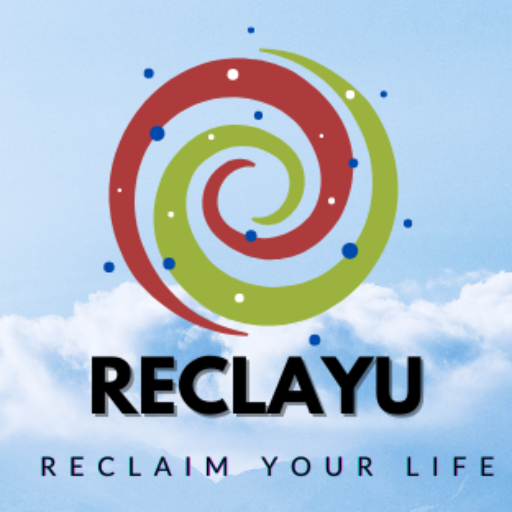Money Can Buy Happiness: The Power of Spending on Experiences
The relationship between money and happiness has been a subject of ongoing debate. While some argue that money cannot buy happiness, others believe it can. In reality, the connection between the two is complex and multifaceted.
Research has demonstrated a correlation between income and happiness, but only up to a certain point. Once basic needs are met, additional income does not necessarily translate to increased happiness. This is where the concept of experiential spending becomes relevant.
Studies have consistently shown that allocating money towards experiences, such as traveling, attending concerts, or dining out, can lead to greater happiness than spending on material possessions. This phenomenon can be attributed to the "hedonic treadmill," which describes the human tendency to rapidly adapt to new material possessions and return to a baseline level of happiness. In contrast, experiences tend to be more memorable and can provide a lasting sense of joy and fulfillment.
This is because experiences are often shared with others, create lasting memories, and can contribute to personal growth and self-discovery.
Key Takeaways
- Spending money on experiences can lead to greater happiness than spending on material possessions
- Research shows that experiences create more lasting joy and satisfaction than material possessions
- Investing in experiences can enhance overall well-being and lead to long-term benefits
- Prioritizing experiential spending in your budget can lead to a more fulfilling and meaningful life
- Cultivating meaningful experiences is key to achieving lasting happiness
Why Experiences Bring More Joy Than Material Possessions
The Limitations of Material Possessions
When it comes to the age-old debate of money and happiness, it's essential to consider the impact of experiential spending. While material possessions may provide temporary satisfaction, experiences have been shown to bring more joy and fulfillment in the long run.
The Social and Emotional Benefits of Experiences
Experiences are often shared with others, whether it's traveling with friends, attending a concert with family, or trying a new restaurant with a partner. These shared experiences can strengthen relationships and create lasting bonds, leading to a sense of connection and belonging.
Anticipation and Nostalgia: The Long-Lasting Effects of Experiences
Additionally, the anticipation leading up to an experience can bring excitement and joy, as individuals look forward to the event and savor the anticipation. Finally, experiences create lasting memories that can be cherished for years to come, providing a sense of nostalgia and happiness long after the experience has ended.
How Spending on Experiences Can Enhance Well-being
In addition to bringing more joy than material possessions, spending on experiences can also enhance overall well-being. Research has shown that experiences can contribute to a sense of personal growth and self-discovery, leading to increased life satisfaction and happiness. This is because experiences often push individuals out of their comfort zones, exposing them to new cultures, ideas, and perspectives.
Experiences can also provide a sense of adventure and excitement, leading to an increased sense of vitality and energy. Whether it's trying a new activity, exploring a new city, or attending a cultural event, experiences can ignite a sense of passion and curiosity that can enhance overall well-being. Additionally, experiences can provide a sense of purpose and meaning, as individuals engage in activities that align with their values and interests.
This can lead to a greater sense of fulfillment and satisfaction in life.
The Long-term Benefits of Investing in Experiences
| Study Title | Money Can Buy Happiness: The Power of Spending on Experiences |
|---|---|
| Research Method | Survey and experimental studies |
| Key Finding 1 | Spending on experiences leads to greater long-term happiness than spending on material possessions |
| Key Finding 2 | Experiential purchases are more likely to contribute to a person's identity and sense of self |
| Key Finding 3 | Experiences tend to be more positively evaluated over time, while the satisfaction from material possessions tends to decrease |
| Conclusion | Investing in experiences rather than material possessions can lead to greater overall happiness and well-being |
While material possessions may provide temporary satisfaction, investing in experiences can lead to long-term benefits for overall happiness and well-being. Experiences create lasting memories that can be cherished for years to come, providing a sense of nostalgia and happiness long after the experience has ended. This can contribute to an overall sense of life satisfaction and fulfillment.
Additionally, experiences can contribute to personal growth and self-discovery, as individuals are exposed to new cultures, ideas, and perspectives. This can lead to increased empathy and understanding, as well as a greater sense of connection with the world around them. Finally, investing in experiences can lead to a greater sense of purpose and meaning in life, as individuals engage in activities that align with their values and interests.
This can lead to increased life satisfaction and overall happiness in the long run.
Tips for Prioritizing Experiential Spending in Your Budget
While it's clear that spending on experiences can lead to greater happiness than spending on material possessions, it can be challenging to prioritize experiential spending in your budget. However, there are several tips that can help you make room for experiential spending in your financial plan. First, consider setting aside a specific portion of your budget for experiences, whether it's a monthly allowance or an annual vacation fund.
Additionally, consider cutting back on unnecessary material purchases in order to make room for experiential spending. This could include reducing spending on clothing, gadgets, or home decor in order to prioritize experiences that bring joy and fulfillment. Finally, consider seeking out free or low-cost experiences in your area, such as hiking trails, community events, or cultural festivals.
By prioritizing experiential spending in your budget, you can enhance overall happiness and well-being.
Overcoming the Fear of Missing Out on Material Possessions
Breaking Free from the Fear of Missing Out
In today's consumer-driven society, it's easy to fall into the trap of believing that material possessions will bring us happiness. However, it's important to overcome the fear of missing out on material possessions in order to prioritize experiential spending. This may require shifting your mindset and reevaluating your values in order to focus on experiences that bring joy and fulfillment.
Cultivating Gratitude and Focus
One way to overcome the fear of missing out on material possessions is to practice gratitude for what you already have. By focusing on the things that bring you joy and fulfillment, you can shift your focus away from material possessions and towards experiences that enhance overall well-being. Additionally, consider seeking out experiences that align with your values and interests, rather than succumbing to societal pressure to acquire more material possessions.
Prioritizing Experiential Spending for Happiness
By prioritizing experiential spending over material possessions, you can overcome the fear of missing out and enhance overall happiness.
Cultivating Meaningful Experiences for Lasting Happiness
In order to prioritize experiential spending in your life, it's important to cultivate meaningful experiences that bring lasting happiness. This may require stepping out of your comfort zone and trying new activities or exploring new places. Consider seeking out experiences that align with your values and interests, whether it's attending a cultural event, trying a new hobby, or traveling to a new destination.
Additionally, focus on creating shared experiences with loved ones in order to strengthen relationships and create lasting memories. Whether it's planning a family vacation or organizing a group outing with friends, shared experiences can enhance overall happiness and well-being. Finally, consider seeking out opportunities for personal growth and self-discovery through experiences that challenge you and push you out of your comfort zone.
By cultivating meaningful experiences in your life, you can enhance overall happiness and well-being through experiential spending. In conclusion, while money may not directly buy happiness, the way we spend our money can certainly impact our overall well-being. Research has shown that spending on experiences can bring more joy than spending on material possessions, leading to greater life satisfaction and happiness in the long run.
By prioritizing experiential spending in our budgets and cultivating meaningful experiences in our lives, we can enhance overall happiness and well-being for ourselves and those around us.



